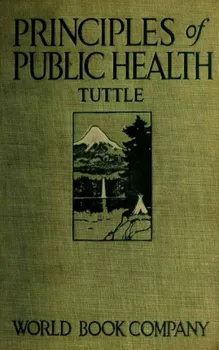The earliest history of remote ages describes methods employed in combating disease, and down through all the centuries the struggle against infection has been going on. The science of health as applied in recent years reveals wonderful progress in the avoidance of disease, and in the control of the violent epidemics by which in the past nations were almost exterminated. Modern methods of hygiene and sanitation as applied to public health have robbed smallpox and diphtheria of their death-dealing power; cholera and yellow fever have been forced to retreat before the victorious hosts of applied medical science; tuberculosis, the greatest foe of human life, is slowly but surely receding before the determined efforts of modern preventive medicine.
By nature man is endowed with resistive power sufficient to ward off most forms of disease, provided he keeps his health at a normal standard by right living. If, however, he allows his health to become impaired by reason of overwork, bad habits, wilful exposure to contagion or unhealthful surroundings, he readily falls a prey to disease.
The author of Principles of Public Health has here set forth the general rules of life by the observance of which every adult and every child not only can do much to preserve his own health but also can prove himself a prominent factor in raising the standard of public health. A campaign of education is demanded to arrest the enormous loss of life which is carrying so many to untimely graves, and the instruction given in this volume will be of inestimable value in teaching people how to avoid avoidable disease.
The author has not attempted to deal with all the diseases that may be classed as preventable; as the work is intended for use in the public schools, only such diseases are mentioned as it seems fitting to present to school children. To teach our children a proper respect for their own health and for the community welfare is to fit them for the best citizenship.
E. A. Pierce, M. D.












